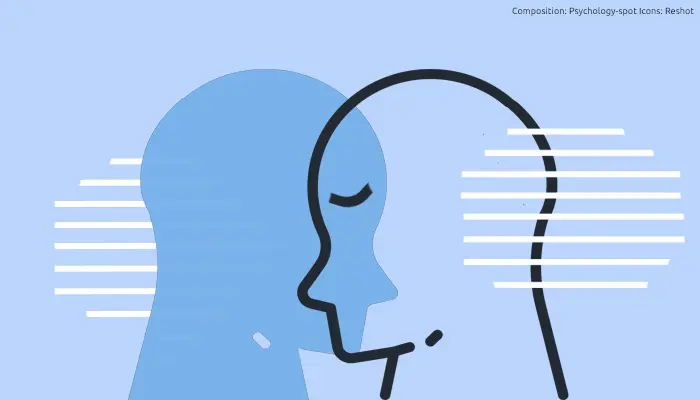
The emotional connection we make with the people around us is a powerful fuel for the soul. We all need understanding and validation. Feeling that there is, at least one other person in the universe, who understands and supports us.
However, in a hyper-connected society, we are increasingly connected, but also more absent and, therefore, more alone. Many people are physically present, but mentally and emotionally far away. They nod their heads agreeing while looking at their mobile. They forget the conversation because they never got involved in it.
Of course, we cannot connect emotionally when we have our heads elsewhere. Empathic resonance, on the other hand, involves connecting with the inner world of the other to help him or her cope with his or her problems or simply provide the support he or she needs.
What is empathic resonance exactly?
The concept of empathic resonance has its roots in Humanistic Psychology. In the context of Rogerian psychotherapy, empathic resonance implies a deeper way of experiencing the interpersonal relationship since it takes into account what the other person expresses – both what he or she says, as what he or she keeps silent, what he or she expresses with words such as what expresses with the body language.
Unlike empathy, empathic resonance does not imply stepping aside to put ourselves in the shoes of the other, but rather using our “self” to connect with that other person, being as receptive as possible to their experiences, feelings and ideas, but without lose sight at any time who owns the feelings of each.
Helping the others avoinding that their problems drag us down
Empathy has gained prominence while the concept of empathic resonance has remained in the shadows. However, it is essential to help the others without being swept away by the storm.
Empathy is the attempt to tune into the experiences and emotions of the other. It is putting ourselves in their place. However, on many occasions that empathy fails to take off and is limited to sympathy or empathic concern that can harm us as well as others, preventing us from assuming the necessary psychological distance to be useful.
The empathic resonance does not imply being “identical” to the other, but a kind of separation is maintained. That distance is what allows us to provide adequate help. Empathic resonance allows us to experience his or her situation, but in a different, often more complete way. So the trees do not prevent us from seeing the forest. We may be able to identify the main problems and conflicts of the other or the dysfunctional strategies that he or she is putting into practice.
Empathic resonance implies experiencing their problems and emotions, but without this clouding our rationality because the confines of our “self” are not erased, but rather act as a necessary defensive layer that allows us to provide the appropriate help.
How to develop empathic resonance? Essential skills
• Mindfulness and full attention. It is the first step without which it is impossible to connect emotionally with the other. It consists of being fully present in the here and now, paying attention to our interlocutor. It implies a genuine presence and a sincere interest for the other’s concerns.
• Experiential search. It involves an active search for the other person’s more complex experiences. It means going beyond what is seen and not settling for the superficial, but trying to delve into the deeper meaning that is usually hidden behind words.
• Active emotional expression. It means putting into words or translating into actions what we are feeling. When we express our vulnerability or open up emotionally, we encourage the other to do the same in order to connect on a deeper level. It is not to be ashamed of pain, failure or any other emotion but to use them to build bridges.
• Unconditional appreciation. Any criticism or attempt to judge breaks down empathy. So empathic resonance demands unconditional appreciation. It does not necessarily mean to agree with the ideas of the other, but to validate his or her emotional experiences showing an unconditional acceptance of them so that that person feels understood and supported.
Sources:
Watson, J. C. & Greenberg, L. S. (2009) Empathic resonance: A neuroscience perspective. In J. Decety & W. Ickes (Eds.) The social neuroscience of empathy (pp. 125–137). MIT Press.
Decety, J. & Meyer, M. L. (2008) From Emotion Resonance to Empathic Understanding: A Social Developmental Neuroscience Account. Development and Psychopathology; 20(4): 1053-1080.
Vanaerschot, G. (2007) Empathic Resonance and Differential Experiential Processing: An Experiential Process-Directive Approach. American Journal of Psychotherapy; 61(3): 313-331.



